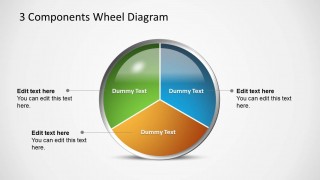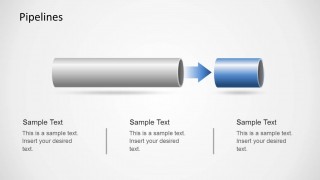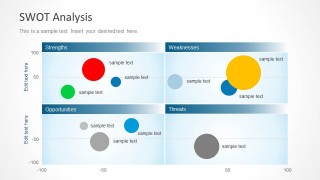Copy and paste the code below into your blog post or website
Copy URL
Embed into WordPress (learn more)
Comments
comments powered by DisqusPresentation Slides & Transcript
Presentation Slides & Transcript
Volunteering. SSLD
September – November 2012
By Linus C. F. Ip & Sherlyn Hu
Based on SSLD Model by Dr. Ka Tat Tsang
????|????|????|????|????|????|????|????|????|????|????|????
3
Check-in
What has happened since?
????|????|????|????|????|????|????|????|????|????|????|????
??
??
??
??
W
Review of Session 2
Find balance between giving to others and caring for ourselves.
Ask yourself:
Do I understand my own needs?
How am I taking care of my own needs?
Anything I can do to better satisfy my needs?
Self-awareness
Self-care
Better outcome
Review of Session 2
Review regularly
How do volunteering connect with my own N3C?
Do I need a break to take care of my needs?
Do I get to share how I feel and receive support from others in a safe environment (e.g. Volunteer peer support meeting, with volunteer coordinator, etc.)?
Do I need to seek professional help myself?
Self-awareness
Self-care
Better outcome
Review of Session 2
Multiple losses as we age
Life review: Make sense and meaning
Problem Translation: From Problem Narratives to Needs Narratives
Listening for Needs
Past, Present, Future
Ask Ourselves
How do we support seniors to go through positive life review (past), to feel good about themselves (present), and to maintain hope and positive expectancy towards their future (future)?
SSLD Model of Volunteer Development
Volunteering
The SSLD approach
Disclaimer!
Giving Feedback
Positive (in positive terms)
Constructive (offers an alternative)
Concrete, specific
Positively…
You’ve done well in…
Even better yet …
Engagement?
Why do we talk about engagement in serving seniors?
Brainstorming…
First and ongoing step in any interpersonal encounter or interaction
Shared understanding, agenda and direction of the encounter
Mutual positive affect (Rapport)
Engagement?
Recall an encounter in which you feel you had good engagement with a senior…
(How do you know?)
Brainstorming…
Strategies and Skills Facilitating Engagement
Agenda Management
Positive Responding
Finding Commonalities & Maximizing Shared Interest
Strategic Self-Disclosure
1
Agenda Management
Figure out our client’s needs and agenda
Stay connected with the agenda
Skills:
Reception (listening for needs)
Watch for signifying acts
Expectation Management
Tells Your Experience as a Senior
One person tells an experience as a senior he/she met (1-2 min)
Others observe, without giving their opinions
Others also record info on the worksheet
Compile a list of needs of seniors
A Tentative List of Needs
Biological needs for survival
Physical safety, sense of security, predictability, control
Physical comfort
Pleasure
Self: Identify, autonomy, agency, action, expression
Achievement: Mastery, control, fullfilment
Actualization, transcendence, spiritual quest
Connection: affiliation, intimacy, belonging, community
Cognitive need for meaning and order
Emotional needs
Tokens: e.g. money
2
Positive Responding
Skills:
Attentive listening
Staying with the flow
Empathetic response
Positive reframing
Empathy: In action
Goal:
Strive to understand the client at a deeper level: Emotions, thoughts, values, needs
The client experiences being seen, heard, and understood
Skills:
Attend to and reflect the other’s expressed thoughts, emotions, values
Express understanding
Signifying acts
2
Positive Responding
Give one example of negative statement you’ve heard in your previous volunteering/work experience.
Exercise:
Positive Reframing
2
Positive Responding
Let’s try positive reframing:
Look at the other side
Think about the conditions of Possibility
Translate into a wish
Scale using both the positive and negative
Take a different angle
Use humour, as appropriate
Exercise:
Positive Reframing
3
Finding Commonalities
Commonality: Factual information, emotional experience, meaning, needs
Expand repertoire of activities
Skills:
Building common ground
Maintain an open and safe narrative space
3
Finding Commonalities
What is one thing you can do to build commonality?
A Mandarin-speaking senior is telling you her favourite local food in Shandong (??), and you’ve never heard of such food while you’re struggling on expressing yourself fluently in Mandarin….
Exercise
3
Finding Commonalities
What is one thing you can do to build commonality?
Mr. Chan is speaking about his experience working for St. John’s ambulance in Hong Kong just after the Second World War, and you’ve never been to Hong Kong nor do you have much to say about emergency response initiatives …
Exercise
4
Strategic
Self-Disclosure
Our presentation and self disclosure have to be consistent with our roles and functions and relevant to client’s needs and agenda
Communication of information about ourselves can help to build trust, emotional engagement and positive expectancy
Skills:
Managing our physical appearance, self-introduction, and opening lines
I want to be a Volunteer…
I want to be a Volunteer…
I want to be a Volunteer…
I want to be a Volunteer…
Now it’s our turn…
Game
Building Trust
Communication of personal information
Everyone gets a card and a pen.
Write down a personal question that you want to find out about the others in the group
Collect all the cards (with personal questions)
Participants take turn to randomly draw a card, read out the question and answer it.
If anyone finds the question too difficult, he/she can choose to draw a 2nd card and answer the other question.
Debriefing
Card game
Self-Introduction
Take a minute to create a brief self-introduction for yourself (for future use in volunteering)
Say it out loud in your small group
Receive feedback from your group
Come up with at least refinement you’ll try
Rotate!
Exercise…
SSLD Model of Volunteer Development
Homework
Practice a 1-min self-introduction of yourself as a volunteer, and:
Obtain feedback from a 3rd person.
Feel free to connect with peer learners to complete the homework.
Try it,
Get more out of it
Program Overview
Note: You shape how this program goes!
SSLD Book
to be published by University of Toronto Press
in 2013








